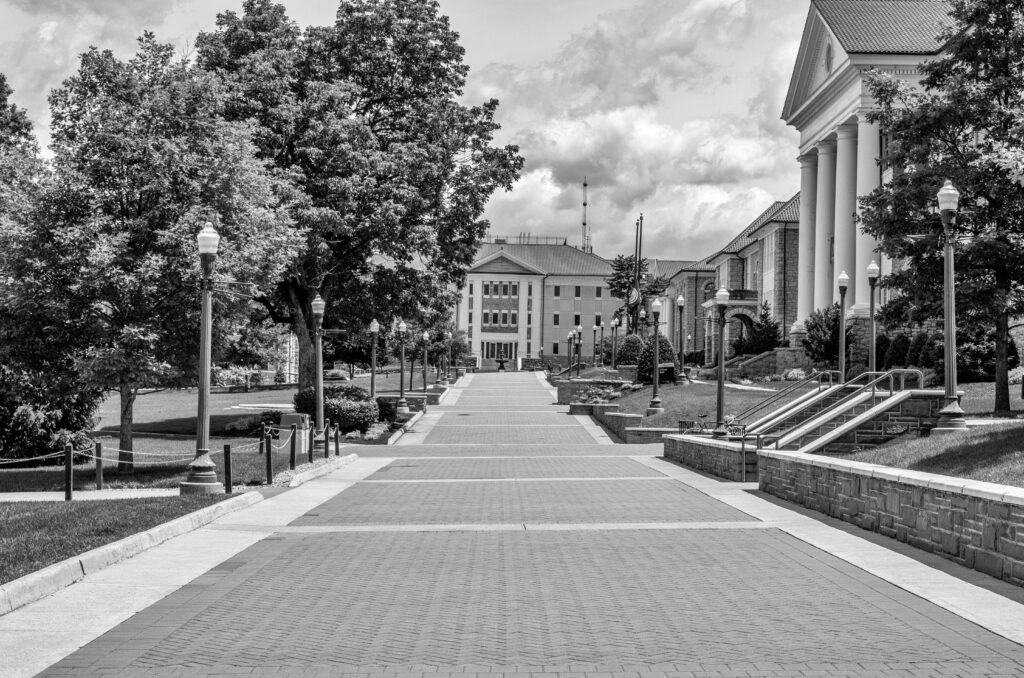Campus News, News
Amid Student Loan Cuts, Trump’s Bill Reclassifies ‘Professional Degrees’
Editorial Staff

Since the signing of President Donald Trump’s ‘One Big Beautiful Bill’, the Department of Education has begun rolling out several of its provisions. Chief among them, amid wider cuts to student loans, is a reconsideration of what qualifies as a “professional degree” and whether this will influence how much a student is reimbursed for their higher education.
Under the new terms, the “new and simplified” Repayment Assistance Plan (RAP) will cap annual loans for new borrowers at $20,500 for graduate students and $50,000 for professional students. As a result, whether a program is classified as professional or non-professional now dictates the level of financial support available to students.
What Counts As ‘Professional’?
The Department’s definition of a “professional degree” is taken from a 1965 federal law that defines it as one that “signifies both completion of the academic requirements for beginning practice in a given profession and a level of professional skill beyond that normally required for a bachelor’s degree.”
They go on to list examples of professional degrees, acknowledging that they are “not limited to” those mentioned, meaning it is unclear which degrees currently not recognized as professional were historically considered non-professional. Their list includes:
- Pharmacy (Pharm.D.)
- Dentistry (D.D.S. or D.M.D.)
- Veterinary Medicine (D.V.M.)
- Chiropractic (D.C. or D.C.M.)
- Law (L.L.B. or J.D.)
- Medicine (M.D.)
- Optometry (O.D.)
- Osteopathic Medicine (D.O.)
- Podiatry (D.P.M., D.P., or Pod.D.)
- Theology (M.Div., or M.H.L.)
Significant concern has been sparked among those whose degrees appear to be missing, which include:
- Nursing
- Physician assistants
- Physical therapists
- Audiologists
- Architects
- Accountants
- Educators
- Social workers
Uproar
The changes have prompted an uproar from many of the affected degree communities, including nursing organizations, with the American Nursing Association (ANA) saying that, “limiting nurses’ access to funding for graduate education threatens the very foundation of patient care.”
The president of the ANA, Dr Jennifer Mensik Kennedy said: “Nursing is the backbone of the healthcare structure in the United States. We are short tens of thousands of nurses and advanced practice nurses already. This is going to stop nurses from going to school to be teachers for other nurses.”
Average tuition at both public and private colleges has nearly doubled over the past 30 years after adjusting for inflation, according to an NPR report. With the bill now in effect, students pursuing high-cost degrees that may not be classified as “professional” could find it harder to cover expenses, and potentially be discouraged from entering certain high-demand fields.
Kevin Kinser, a professor of education policy studies at Pennsylvania State University, offered Newsweek his perspective, saying: “I don’t think the point is to discern professional degrees from other degrees in terms of loan eligibility. It is to limit the exposure of the government to loans that will not be repaid, whether because of default or through public service loan forgiveness policies. So the list includes professions that generally result in high salaries, and neglect professions that have lower earnings or less prominence. The exception here is theology, which may reflect more political calculations than anything else. There is also less of a sense of using loans to encourage people to enroll in other programs from a workforce development perspective. We need nurses and teachers for example, yet loans would be unavailable to support people entering these professions.”
The new measures are slated to take effect from July 2026.
SEE ALSO: The Princeton Review Reports Its 2025 Campus Mental Health Survey Findings












